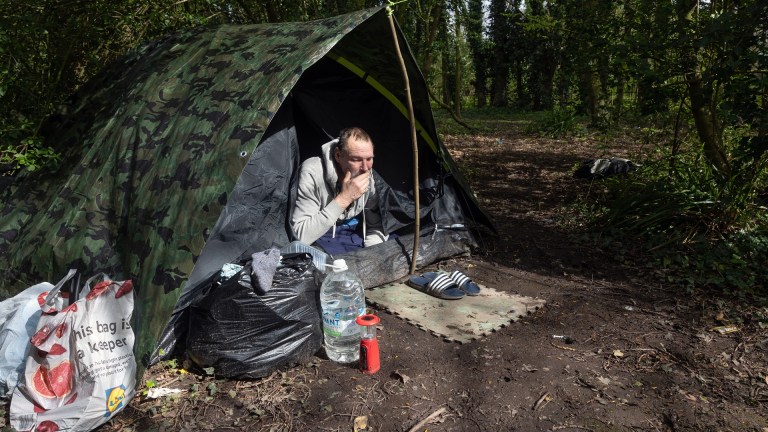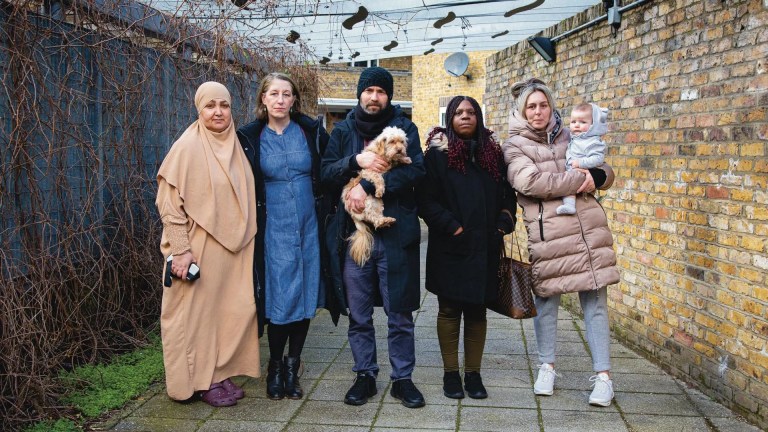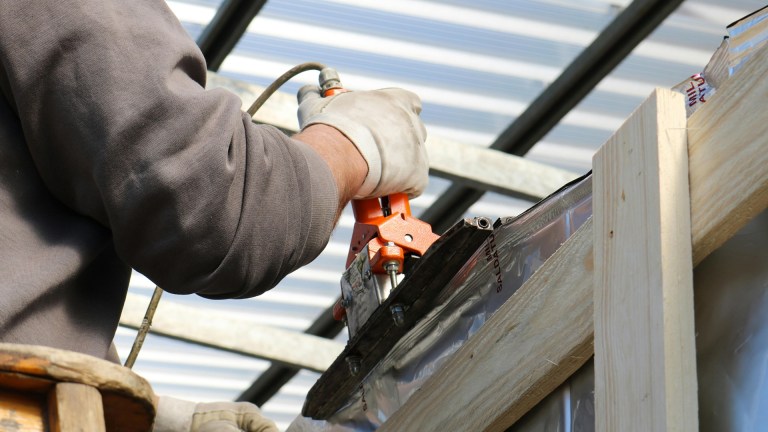“It was really stressful. I ended up having to get some support with my mental health – I had to get some counselling sessions. I’m nowhere near getting housing than I was then to be honest.
“I am currently between family members. It’s really tough. I was living with my daughter before but she’s been put into temporary accommodation and I’ve been left to fend for myself. I’m not a priority as well so god knows when I’m going to get anywhere.”
Gilbert is far from alone.
Crisis’ report, co-produced with Black and ethnic minority communities with experience of homelessness, interviewed 58 people and found tales of racism and discrimination.
This report features direct, unfiltered quotations from people about their own experience, which refer to overt and implicit racism, including physical and verbal attacks and racial slurs, as well as sexual assault and drug and alcohol abuse.
The charity heard how racism affected people’s relationships with society, institutions and services and led to people being locked into poverty due to long-standing and deeply ingrained inequalities.
Advertising helps fund Big Issue’s mission to end poverty
Testimonies spoke of being discriminated against by landlords, having negative experiences with the police and the criminal justice system and receiving inadequate medical care due to the colour of their skin.
Some participants described the isolating effects of racism and homelessness cutting them off from support groups too.
Francesca Albanese, executive director of policy and social change at Crisis, said: “These powerful testimonies once again show how people of colour are being repeatedly let down by our failure to tackle the institutional racism that exists in our housing and homelessness system.
“Ending homelessness is possible but to do that we need long-term systemic solutions that address inequality and remove the barriers that stop people from rebuilding their lives. This means scrapping hostile environment policies such as no recourse to public funds, which limits the help people can receive to find a home.
“As part of this, the forthcoming cross-departmental homelessness strategy must include improving access to social housing, as well as access to public services, so we can prevent homelessness amongst minoritised ethic communities and ensure they can leave it behind for good.”
For Gilbert, 36, who worked as a lived experience researcher on the report alongside Crisis, the interviews tallied with her own experiences of racism.
Advertising helps fund Big Issue’s mission to end poverty
She told the Big Issue that she felt that her treatment would have been different if she wasn’t Black.
“It was really eye-opening to see some of the responses we got from the people we interviewed,” said Gilbert.
“The disparity shows how limited options are for Black families facing housing instability, pushing many into insecure short-term living arrangements.
“The lack of support I got. When I showed up to the council I had no phone, I had no way of communicating with anyone except for through a family member’s home. They ended up calling the wrong number and the person abused them down the phone so I was accused of doing that when I gave them my brother’s number.
“I feel like I was just left to the streets. I feel like I would have been treated differently [if I was white]. I’ve seen it for myself, people getting into accommodation within a month or up to three months where Black people can be there for years, sometimes in a overcrowded predicament.”
The government has been urged to include anti-racist measures in its upcoming homelessness strategy.
Advertising helps fund Big Issue’s mission to end poverty
Tracey Bignall, director of policy and engagement at the Race Equality Foundation, said Crisis’ report “addresses a critical gap in understanding the challenges faced by Black, Asian, and minority ethnic communities, who are disproportionately affected by homelessness”.
Shabna Begum, CRO of Runnymede Trust, added: “Perhaps most telling is that not only is this disproportionality induced by institutional racism embedded in systems, but by active and intentional policies that push people of colour into the horrors of homelessness.”
But for Gilbert and others still facing homelessness going into 2025 like her, she would like to see a transformation in how the homelessness system treats people going forward.
“I’d like to see these barriers dismantled to see a housing system that prioritises dignity, justice and fair treatment for all residents,” said Gilbert.
“I’m just hoping I can find somewhere to live and find some stability because it’s all good me working and stuff but I haven’t got my own space and that’s the reality.
“I don’t want to have to keep on relying on people. You don’t want to fall out with the person and you don’t want to overstep the mark. How long can you stay at someone’s house also? You’ve got to think about all of these things because other people have their own lives to live as well. There are so many of us in that predicament.”
Advertising helps fund Big Issue’s mission to end poverty
Do you have a story to tell or opinions to share about this? Get in touch and tell us more. This Christmas, you can make a lasting change on a vendor’s life. Buy a magazine from your local vendor in the street every week. If you can’t reach them, buy a Vendor Support Kit.










